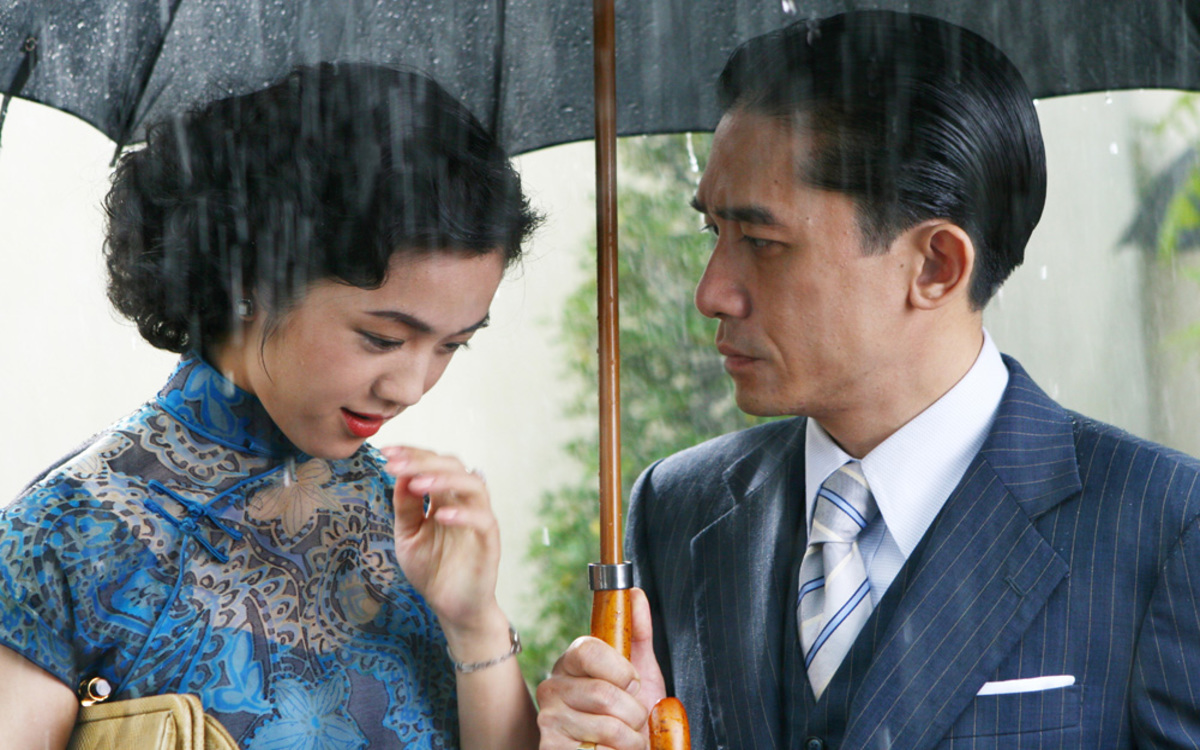
Lust, Caution, starring Tang Wei (L) and Tony Leung Chiu-wai was heavily censored and earned Tang a two-year ban from China’s film industry.
Welcome to the second installment in a 10-part series of practical tips that will make up the CFI Guide to Film Production in China. Publishing each Friday from now until just before the annual U.S. China Film Summit and the American Film Market in Los Angeles in early November, the CFI Guide is built upon wide-ranging research and reporting checked against specific case studies and available official documentation. It is for writers and producers, directors, actors, and members of the film marketing and distribution chain who believe that working with China is a part of their future. With Chinese ticket sales up nearly 50 percent in 2015, and likely to surpass U.S. sales inside the next year, it’s clear that this market is too big to be ignored. China Film Insider (CFI) is here to help you better understand China’s filmmaking process and industry.— Jonathan Landreth, Founding Editor
Because China lacks a film rating system to put the power of choice into consumers’ hands, the power lies instead with a group of censors—numbering between 19 and 36 people at any given time—whose job it is to grant or deny each film entry into the market.
It is key to know their current rules. That’s right: their current rules. Although various quasi-official sources outline what is and is not acceptable for the big screen, China and its one-party government currently lack a film law that would set clear guidelines and standards. As such, it’s difficult to know whether or not a proposed project may fall afoul of the censors, whose whimsy seems to be determined in large part by the higher ranks of the Chinese Communist Party (CCP)—an organization for which projecting the image of a stable society is considered paramount.
Although you can never be exactly sure what will pass the censors, save time and money by following some basic principles when submitting a film project or a finished film for distribution in China:
Check yourself. Watch everything that has made it to the screen in China during the last 18 months to gauge what is currently resisting the ever-shifting political winds. Even if your film bears a passing resemblance to other films in a popular genre, it is subject to rejection. The early 2016 Marvel hit Deadpool, for instance, was rejected in China for being too violent—this after a string of Marvel films, and films with comparable levels of violence outside the comic-book genre, made a lot of money there.
Work with the censors. Submit your film’s name and plot outline to the State Administration of Press, Publications, Radio, Film, and Television (SAPPRFT), both in Beijing and—if you want the film to air on provincial satellite television—at each provincial-level SAPPRFT office. Listen to their feedback and be prepared to make their suggested cuts. The list of deletions from popular imported films is long, ranging from the seemingly innocuous scenes of laundry hanging out of Shanghai apartment building windows removed from Mission Impossible III, to the evisceration of the crucial sex scenes in Lust, Caution. Sex makes the censors squeamish, especially, as in Brokeback Mountain, when it involves homosexuality. Although beloved as a Chinese director, Ang Lee’s film about gay cowboys was banned from China outright.
Know the red flags. Be especially mindful if your film addresses any aspect of Chinese history, especially the modern topics of the Chinese Communist Revolution, the Cultural Revolution, and the famines of 1959-1961, or if it is in some way related to the leaders of the CCP and their families. If your project touches on any of these areas, expect that the CCP history research center, the Party leaders, and their living family members will be a part of the censorship process.
SAPPRFT does not work alone; it will also seek advice from other government organizations that oversee content related to the topics of submitted film projects. If yours is a spy thriller, expect the censors to consult the Ministry of State Security; if it has Chinese ethnic minority characters in it, the State Ethnic Affairs Commission will be taking a look. Health-themed dramas will be censored by the National Health and Family Planning Commission, and cop movies will be reviewed by the Ministry of Public Security. Films addressing spirituality will be censored by the State Bureau of Religious Affairs, and the Ministry of Education will pore over any films with students and schools in their plots.
Law- and justice-themed dramas will go to the Ministry of Justice for review, and the Ministry of Foreign Affairs will check films touching on international relations. Films depicting historical wars that occurred after October 1, 1949 (the date of the establishment of the PRC) are banned outright to preserve China’s stable foreign relations. Even a China-friendly drama about the Korean War, for example, would be denied under this regulation.
Listen to Chinese filmmakers. In the last decade, with the rise of a viable movie marketplace where real money can be made and lost, Chinese filmmakers have experienced the brunt of their government’s censorship and have valuable experience to share, both positive and negative. Director Feng Xiaogang is among the most outspoken critics of the opacity of the censorship process. “Every time I want to shoot something, I have to consider: ‘Can this pass (the censorship review)?’” Feng told the Legal Daily newspaper in November 2015.
Read Part 3, “The Import Rules Are Strict.”





